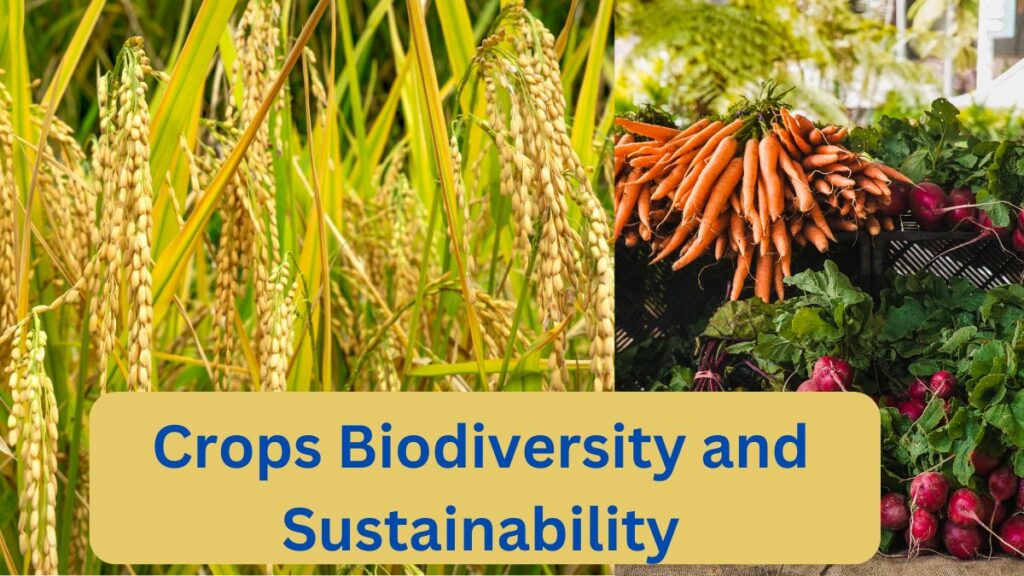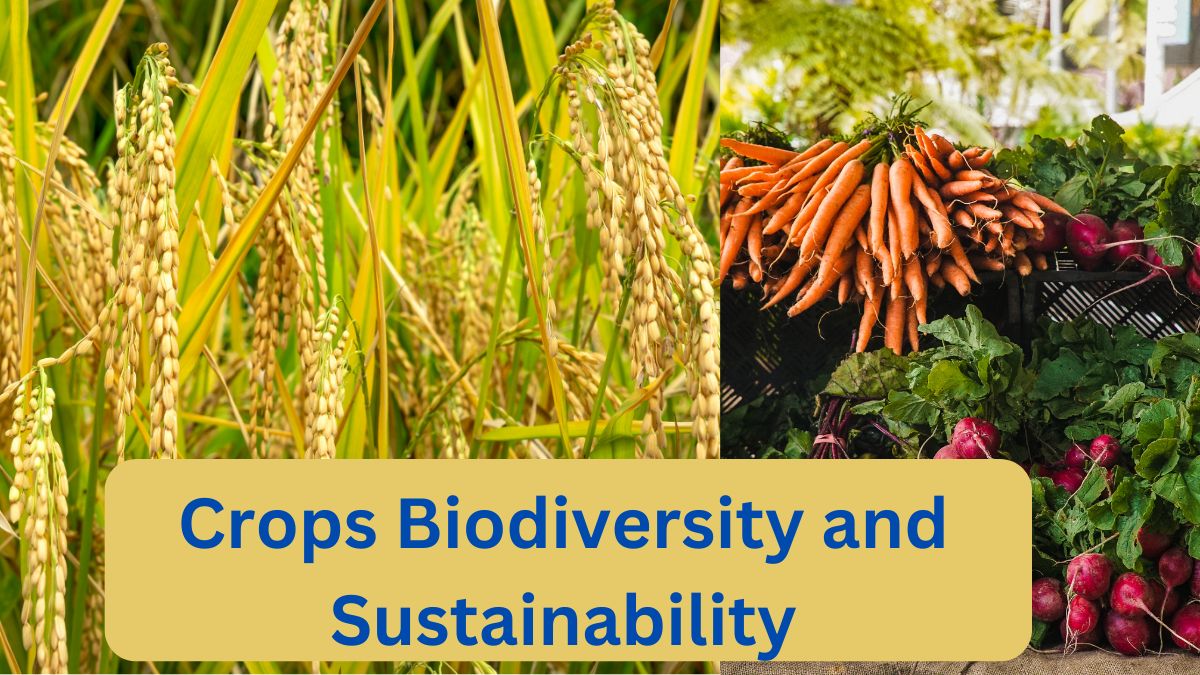Affects of high yield crops on biodiversity and sustainability: How has the focus on high yield crops affected India’s agricultural biodiversity and sustaina bility? Suggest major to promote a more holistic approach to agriculture.
Table of Contents
Since the implementation of Green Revolution during 1960s government focus shifted to a high yield crops to provide food security.
High yield crops impact on biodiversity: Monotony of crops reduces crop diversity.
Neglect of nutritious traditional crop example millets are declined by 90% since 1950 due to promotion of rice and wheat.
Less preference is given to horticulture due to faulty policy measures example minimum support price provided for only 22 crops.
Incidence of pest attack, low genetic diversity causes crop more susceptible to pest and diseases.
Impact on sustainability
Declining water table due to unsustainable agricultural practices Niti Aayog report 2020 says that twenty one major cities will run out of groundwater by 2030.
Increased ways of chemical input causing decline soil fertility. Icar reported 120MN hectare of land are affected by land degradation.
Majors to promote holistic approach on biodiversity and sustainability
Crop diversification programme like Millet’s mission to promote production of and consumption
Encourage zero budget natural farming are organic farming that will lead to sustainable way of input. For example Sikkim decreased input cost by adopting the organic farming.
Genetic conservation and seed banks to preserve the genetic diversity of various crop that can be used in future if in any case that crop vanish from the land.
High heel crops needs to be systematically replaced with local crop to ensure food security and ecosystem health and farmer livelihood.
This question can be answered in different way also which is mentioned as below
How has the focus on high yield crops affected India’s agricultural biodiversity and sustainability? suggest major to promote a more holistic approach to agriculture.

The forecast on high yield crop in India basically after the Green Revolution aimed to boost food security by increasing agricultural productivity.
Reduction in biodiversity: The emphasis on high yield crops like wheat and rice has led to a decline in traditional crop variety is reducing overall biodiversity.
Loss of traditional varieties: Many local drought Hello assistant and nutritionally superior crop such as millets have been abandoned in favour of high yielding varieties that led to the venue of such a highly valuable crop variety.
Increased chemical dependency: High ill crops have increased the Reliance on chemical fertilisers and pesticides leading to soil degradation and environmental pollution.
Monoculture practices
The focus on the The staple crops have introduced the reliance on chemical fertilizer and pesticides leading to soil degradation and environmental pollution.
To promote holistic agriculture key measures introduced crop diversification to enhance biodiversity, promoting traditional agricultural practises and traditional crops like millers and adopting organic farming to reduce chemical use.
Agroforestry can integrate trees with crops for better file health and sustainability That will ensure productivity And will not harm the environment.
In this way you can write the answer for any competitive examination in proper manner in order to get the good marks and get selected in a respected completed exam search at UPSC and state PCs exam.
| Home Page Click Here |
What is zero budget natural farming
Zero budget natural farming is practice of farming in which no chemical substances is used during any stage of farming.
What is crop diversification?
Crop diversification is a practice of planting crop of various type and variety in different type of season keeping in mind the nutritious enrichment of soil through the crop as well.

